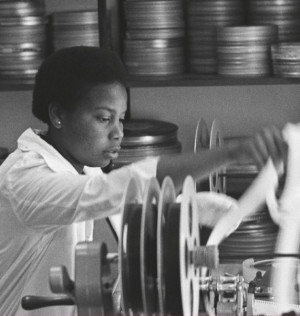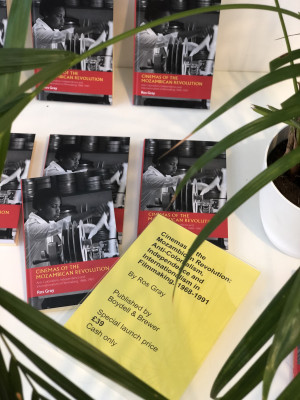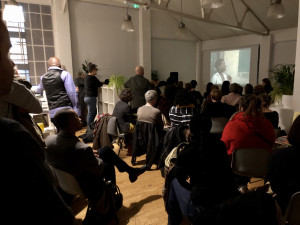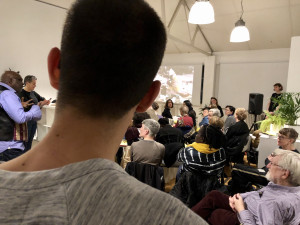Book Launch and Screening: Cinemas of the Mozambican Revolution
, –










Author Ros Gray presents excerpts from rarely screened films including Santiago Álvarez’s Maputo: meridiano novo (Maputo: The Ninth Meridian), 1976 and João Costa and Carlos Henrique’s Pamberi ne Zimbabwe (Forward Zimbabwe), 1981 on the occasion of the launch of her book, Cinemas of the Mozambican Revolution: Anti-Colonialism, Independence and Internationalism in Filmmaking, 1968-1991, followed by a drinks reception.
In one of the first cultural acts to follow independence in 1975, Frelimo’s new socialist government of Mozambique set up a National Institute of Cinema (the INC). In a country where many people had little previous experience of cinema, the INC was tasked to ‘deliver to the people an image of the people’. This book explores how this unique culture of revolutionary filmmaking began during the armed struggle against Portuguese colonialism.
Following independence, the INC began the task of decolonising the film industry, building on networks of solidarity with other socialist and non-aligned struggles. Mozambique became an epicentre for militant filmmakers from around the world and cinema played an essential role in building the new nation. Crucially, the book examines how filmmaking became a resource for resistance against Apartheid as the Cold War played out across Southern Africa during the late 1970s and 1980s.
Drawing on detailed film analysis, production histories and testimonies of key participants, Cinemas of the Mozambican Revolution provides a compelling account of this radical experiment in harnessing cinema to social change. The book offers a pre-history to current debates on decolonisation, the politics of the moving image, and artistic engagements with anti-colonial archives.
Cinemas of the Mozambican Revolution: Anti-Colonialism, Independence and Internationalism in Filmmaking, 1968-1991 is published by Boydell & Brewer Special launch price of £39 on the night
